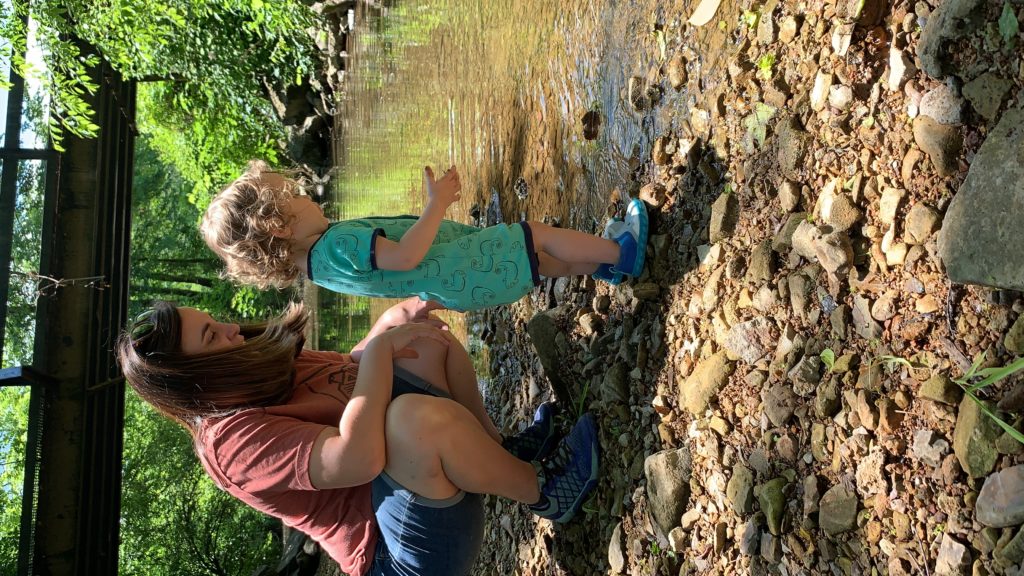It’s difficult to thrive in a season we’re currently in, faced with a global pandemic that doesn’t seem to show signs of slowing. Besides the fact that the virus exists, the measure our society has taken to curtail its spread has upended most of our lives. Especially our rhythms.
Rhythms are so important in life. With the right rhythm, movement becomes beautiful, artistic dance. Something worth marveling at and replicating. With the wrong rhythm, movement becomes awkward, stilted, and, painful to watch.
In a season like we’re all in, it’s tough to find your footing. And we can easily find ourselves turning to lots of different things to satisfy us. From our vice of choice to our jobs, from binging the latest on TV to obsessing over our outdated kitchens that we’re forced to stare at all day every day, discontentment hangs on to our shoulders like a wet blanket. It drips water on everything we touch. It jades our responses, emotions, and resolve. And it’s like trying to quench our thirst by drinking sand. The more you drink, the thirstier you get.
This feels like the kind of season that the Apostle Paul would lean in and give us encouragement during. Because it’s encouragement, hope, and perseverance we need right now. In Philippians 4, Paul says this:
I have learned to be content whatever the circumstances. I know what it is to be in need, and I know what it is to have plenty. I have learned the secret of being content in any and every situation, whether well fed or hungry, whether living in plenty or in want. I can do all this through him who gives me strength.
You’ve heard that last sentence above, likely quoted on a motivational poster of a marathon runner telling you that you can sprint a marathon. Out of context, that interpretation seems valid. Within context, though, it takes on a much deeper meaning. Paul can “do all things” because he has learned contentment. Meaning he’s walked through different seasons of life, and God’s driven him to a deep, abiding satisfaction despite his circumstances.
I bet Paul, if he were writing today, would say something like: “I have learned to be content…while being quarantined, while not knowing the future of our culture, while not being able to go to gyms or restaurants…”
A global pandemic makes it hard to find contentment. But it’s the perfect soil for exploring. My grandpa has a farm with a creek bed that’s perfect for exploring. In it you’ll find rocks, bugs, shells, crawdaddys, and Native American money. I was able to show our kids the wonders and joys of it while we were there this summer. The more you stare at the creek bed, the more you see. At first glance, you just see a bunch of random rocks. But as your eyes adjust, you see layers and layers of treasure.

So what does it mean to learn contentment like Paul mentions? How do we explore it in this season?
3 truths to learning contentment
1. It’s a process.
This process oftentimes involves pain before it produces fruit. Look at Paul’s life: he learned contentment through some pretty painful experiences. And contrast that with Jesus’ words that it’s easier for a camel to go through the eye of a needle than for a rich man to enter the Kingdom of Heaven and you’ve got the extremes covered. The process involves you walking through these only to realize that you’re not in control. And that circumstances don’t determine contentedness.
2. It takes time.
Every time you walk through a new, previously unknown season, you’ve got the chance to walk through becoming more content in who God has created you to be and what He’s created you to do. When my wife and I went through premarital counseling, our pastor said something that has stuck with me: don’t get married to someone you haven’t experienced all 4 seasons with. The principle was this: you can’t know you love someone until you see them in multiple scenarios. The same is true with contendedness: you can’t know if you’re content until you’ve experienced life.
3. It takes trust.
Ultimately, contendness involves you trusting. Trusting that He will make your paths straight, that His plan is better than yours, and taking a risk on His ways.
Delight yourself in the Lord, and He will give you the desires of your heart. – Psalm 37:4
You can’t delight in someone you do not trust. And as you delight, your desires change. And as your desires change, you become more content.
Trust in God –> delight in God –> contentment in all things
Keep your eyes on Jesus. He’s the author and the perfecter of our faith. (Hebrews 12:2) And the one that offers true contentment.

